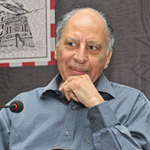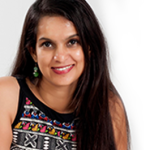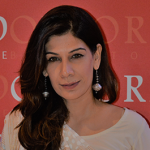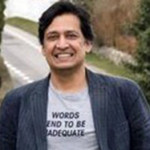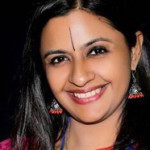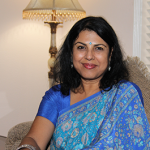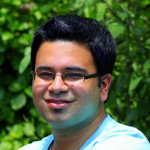About Him
Javed Akhtar needs no introduction to Indians, but a few lines for the benefit of our non-Indian members and visitors; Mr. Akhtar or Javed Bhai (as he is affectionately addressed; ‘Bhai’ is used for elder brother) is a very acclaimed mainstream Indian poet, lyricist and screenwriter in Bollywood. He is a recipient of the Padma Shri (1999), Padma Bhushan (2007) (3rd highest civilian award in India), the Sahitya Akademi Award (literary honor in India) as well as five National Film Awards. He has written lyrics for over 100 Bollywood movies and scripts for over 36 movies. He is the son of well-known Urdu poet and film lyricist Jan Nisar Akhtar and Safia Akhtar, teacher and writer, Javed Akhtar belongs to a family lineage that can be traced back to seven generations of writers. The highly respected Urdu poet, Majaz was his mother’s brother and the work of Muzter Khairabadi, his grandfather, is looked upon as a milestone in Urdu Poetry.His both children, Farhan Akhtar(bollywood actor/scriptwriter/director) and Zoya Akhtar (scriptwriter/director). He has addressed many international universities as Keynote speakers including Harvard, Oxford,Cambridge, Berkeley,University of London and many more.
On his last trip to Dubai, I stole a few exclusive moments to have a rare and exclusive interview with him keeping you in mind, the members and visitors of TheWriteScene.
It’s always a pleasure to meet Javed Bhai in his crisp kurtas and more so this time, for this evocative interview, although it was at the end of the day just before he had to leave our home for the Airport. His wit permeates his anecdotal conversations and heartwarming style!
Welcome Javed Bhai, to 'Candid with Deeba', I would like to ask you the following questions:
-
Deeba: You started writing at the age of 19 and from the age of 20 to 35 you were a scriptwriter and post that till now you have been into lyrics writing. Which one do you prefer? How different in your view is each from the other?
Javed Bhai: To set the record straight, i started writing at the age of twenty or nineteen and a half but became a regular, full fledged script writer from 1970 onwards. From 1970 to 1980 I was purely a scriptwriter and then I started writing lyrics and my first film as lyricist was Silsila, that was released in 1981 and after that gradually I shifted to lyrics writing and for the next 10-15 years I only did that. But after that, I returned to script writing and now I have a few films in production. Technique is totally different, in the sense one is prose and the other poetry. One is like a marathon and the other is like 100 yards. Songs usually contain 12 or 16 lines and script is so long that you continue till your fingers hurt if you write with pen, as I do. Each has its own advantages or disadvantages. I think, everything you do needs some level of competence and to reach somewhere near perfection is very difficult. Both lyrics writing and script writing per se are not easy or difficult, the question is what will satisfy you and make you proud of your work.
-
Deeba: This is quite true. Mediocrity is easy and reaching perfection is indeed difficult. Moving on, we would like to know, what projects you are currently working on?
Javed Bhai: Currently, I am working on two films with Excel Entertainment. One is called Gold, which is based on the first Hockey team that won Gold. The characters are not real, though the story outline is. I am also working on a film with Farah Khan for whom I have written songs earlier but not worked on a script. It is being casted at the moment.
Deeba: That's interesting and we look forward to your next projects.
-
Deeba: How would you describe your style of writing?
Javed Bhai: You see, screenplay needs a lot of craft. You can have spontaneity when thinking of the story or of characters. I think art is produced in a kind of a paradox, in a kind of contradiction, in Ghalib’s words, ‘Bekhudi wa Hoshiyari’. Any type of art, whether it is music, dance, poetry or writing consists of two factors, which are ostensibly not compatible. One is craft and the other is imagination, passion and emotion. I will give you an example, let’s say you are acting in Shakespeare’s Hamlet, as Prince Hamlet and have to say the line - ‘To Be or Not To Be’. On one hand you have to get into the skin of the character and emote in that way and on the other, you have to remember the direction given by the director to reach the chalk mark and face a certain light at the end of the line. The artist does both the things together and that’s why art is a natural paradox.
When you are writing a story, on one hand you are living the agony, the pain, the feeling, emotions and reactions of the character, and at the same time, there is another person within you who is watching the growth and the direction and warns you not to take a certain direction and warns you that it may lead you to a a dead end. This side is totally calculated and it is happening at the same time. If you are too emotional your calculation will go haywire and vice versa. Both have to happen in the right proportion and at the same time. This is how it is a paradox.
Deeba: Honestly, that's a very vivid explanation with a great example.
-
Deeba: How about your creative process interaction with your son Farhan Akhtar and daughter Zoya Akhtar, do you sit and brain storm on each other’s concepts and ideas or each of you work in isolation? Do you guide them or give inputs? What is the interaction process?
Javed Bhai: Each one of them have their own little world and work with their own conviction but there are no water-tight compartments. When Farhan has a script he gives it to me to read and takes my suggestions. I also share with them and take their suggestions seriously. But it doesn't mean that them or I accept each and everything. We have a healthy creative interaction where each one ponders over the suggestions put forward and accepts or rejects depending upon our own rationale.
Deeba: That displays an extremely interactive and a healthy creative environment. We wish you all the very best for your next projects.
-
Deeba: What are the key elements of a novel turned into a movie, have you worked on any?
Javed Bhai: I have not worked on an adaptation. It is rare now. Classics are not being made into movies. Any good story / novel will not be generic it will be deeply rooted into its own soil. It will have the ethos and culture of that region. What happens is most of the commercial Hindi cinema wants the film not to be associated with any particular region and this is the limitation why not much adaptation is there. However, the moviemakers need that elbowroom, which a good novel will not allow. Salman Rushdie said something interesting in one of his interviews, that each story is a censor in itself as it stops you from telling other tales. So the moviemakers don't want to be in that straight jacket.
Deeba: Understandable!(laughs)
-
Deeba: Something I ask all my guests! (laughs) your favorite non-alcoholic drink?
Javed Bhai: Banana Milkshake (with a smile)
-
Deeba: That’s interesting,(smiles) one last question as I know you are getting late. What are your views on our new initiative of ‘Young Author Awards’ to recognize the next generation authors under the age of 30?
Javed Bhai: I think it is a wonderful idea to organize an awards function to encourage young authors and also to bring attention to them, that's wonderful. I think it is a positive and great idea and I must congratulate you for doing it. Now days I see an encouraging restating trend that many young people want to write - they want to write prose, poetry, fiction and I think there is a revival in younger generation. Am very happy that younger generation is producing writers.
Deeba: Thank you so much for your time!
To interact with our guest - Javed Akhtar, connect with him on twitter: @javedakhtarjadu or visit his website: http://www.javedakhtar.com


